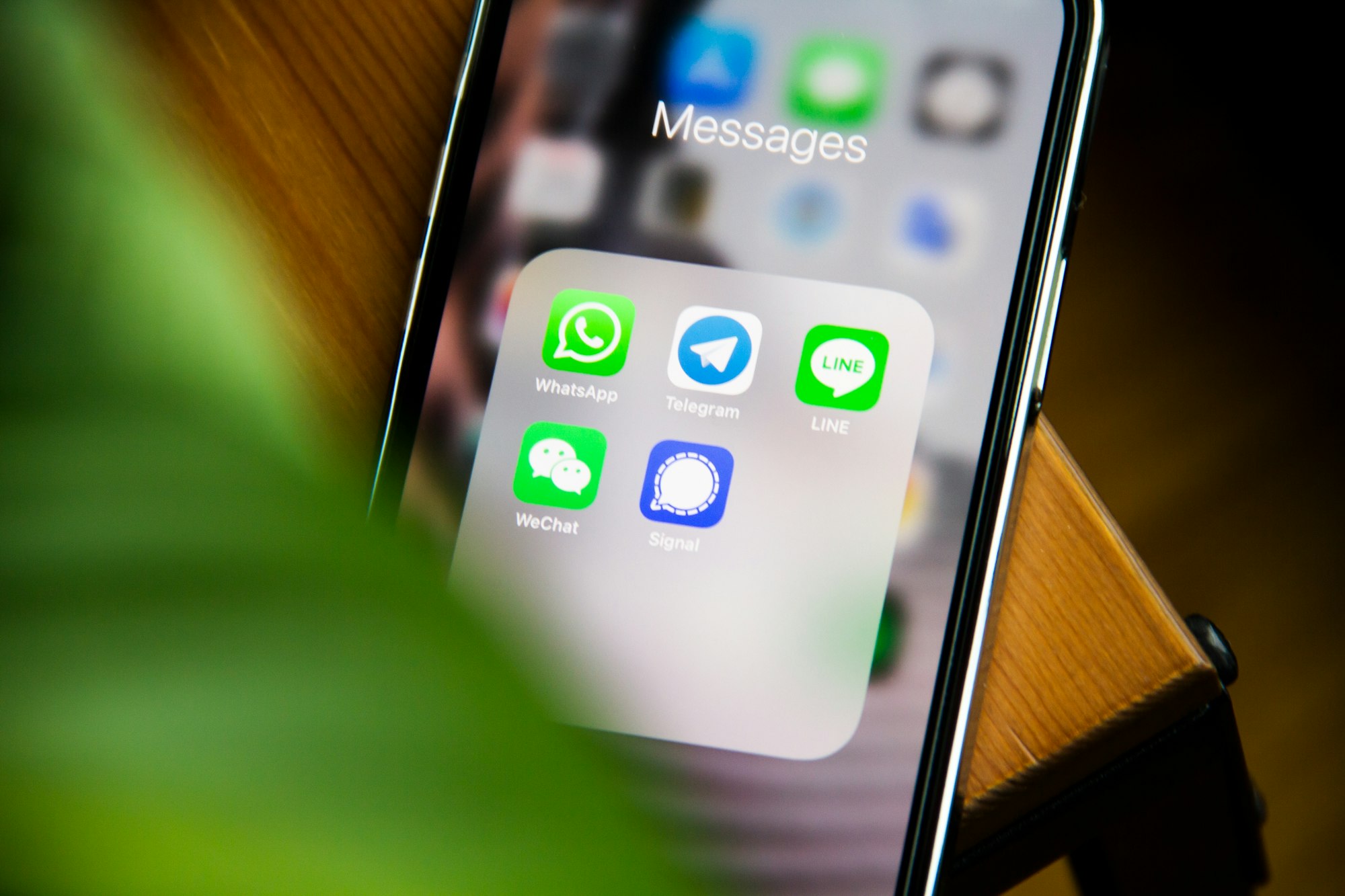Reshaping America's Digital Defense: Trump Administration's Sweeping Changes to Intelligence and Cybersecurity Leadership

In the first months of President Donald Trump's second term, his administration has implemented far-reaching personnel changes across America's intelligence and cybersecurity apparatus. These changes, characterized by critics as a purge and by supporters as necessary restructuring, represent one of the most significant overhauls of the U.S. national security establishment in decades. This article examines the scope and potential implications of these changes across major agencies.
US Cyber Command and NSA: Leadership Transition and Operational Shifts
The Dismissal of General Timothy Haugh
On April 3, 2025, the Trump administration fired General Timothy Haugh, who had been serving as both the Director of the National Security Agency (NSA) and Commander of US Cyber Command. Haugh, who had been in the role for just over a year after being nominated by former President Biden in 2023, was dismissed along with NSA Deputy Director Wendy Noble.
The dismissal came shortly after Haugh testified before Congress regarding a controversial Signal chat leak incident involving high-ranking Trump administration officials. While no official reason was provided for his removal, reports suggest that far-right activist Laura Loomer had urged President Trump to fire Haugh, claiming he was disloyal to the administration and had been "hand-picked" by former Joint Chiefs Chairman Mark Milley.
Senator Mark Warner (D-Va.), vice chairman of the Senate Select Committee on Intelligence, criticized the move, questioning how firing Haugh during a time of unprecedented cyber threats from China would enhance American security. Representative Jim Himes (D-Conn.) similarly expressed concern about the lack of transparency surrounding the decision.

Lt. Gen. William J. Hartman Takes Command
Lieutenant General William J. Hartman was promptly appointed as Acting Commander of US Cyber Command and Acting Director of the NSA. Hartman, who previously served as Deputy Commander of Cyber Command, has significant experience leading cyber operations, having commanded the Cyber National Mission Force.
Complementing Hartman's appointment, Sheila Thomas was named Acting Deputy Director of the NSA. Thomas most recently led the NSA's cryptologic partnership with the United Kingdom.
In his first public appearance after his appointment, during a Senate Armed Services cyber subcommittee hearing, Hartman defended the continued "dual-hat" arrangement where one person leads both the NSA and Cyber Command. He stated that this structure allows him to "move with the speed and agility and unity of effort that is required" and "forces leaders across the organization to collaborate."
Personnel Reductions and Strategic Direction
Beyond leadership changes, the NSA is experiencing significant staffing cuts. According to Lt. Gen. Hartman, the agency typically loses about 7% of its workforce to retirement annually but is now undergoing an accelerated 8% personnel reduction within just 90 days. Hartman has emphasized that all departing personnel have done so voluntarily, generally being retirement eligible and taking advantage of more favorable departure programs.
Despite these reductions, Hartman has asserted that the NSA remains focused on key priorities including defending the homeland, modernizing capabilities, and maintaining its core functions of code making and code breaking. He has highlighted America's strategic advantage over China in artificial intelligence, noting the establishment of an AI task force to strengthen US capabilities.

The Dual-Hat Debate Resurfaces
The Trump administration is reportedly considering splitting the dual-hat leadership arrangement between the NSA and Cyber Command. This structural change has been debated for years, with some arguing that the two organizations have distinct missions that require separate leadership. However, in recent Senate testimony, Hartman strongly advocated for maintaining the current arrangement.
Senator Mike Rounds (R-SD), chairman of the Senate Armed Services Subcommittee on Cybersecurity, also expressed support for the dual-hat structure, describing it as of "absolute importance" in the "face of unexpected change."
A decision on this matter could emerge soon, as the administration is expected to announce permanent leadership nominations for both organizations. Multiple military, civilian, and congressional sources suggest that the administration may first fill the top civilian position at the NSA, which would set in motion other leadership decisions.
Operational Shifts
Reports emerged in March that Defense Secretary Pete Hegseth had ordered US Cyber Command to stand down from all planning against Russia, including offensive digital actions. While the Department of Defense disputed this characterization, the controversy highlighted potential shifts in operational priorities under the new administration. The purported order would not have impacted NSA cyber espionage activities against Russia, as these operations fall under different authorities.
The Mike Waltz Saga: From National Security Advisor to UN Ambassador
Signal Chat Controversy and Removal
One of the most high-profile personnel changes occurred on May 1, 2025, when President Trump announced that he was nominating National Security Advisor Mike Waltz to serve as U.S. Ambassador to the United Nations, effectively removing him from his White House role. Secretary of State Marco Rubio was appointed to serve as interim National Security Advisor while continuing in his current role.
Waltz, a former Army Green Beret and congressman from Florida who had been named National Security Advisor in November 2024, had been under scrutiny since March when he inadvertently added Jeffrey Goldberg, editor-in-chief of The Atlantic magazine, to a Signal chat with top administration officials discussing military strikes on Houthi rebels in Yemen.
Although Trump initially stood by Waltz after the incident, calling him "a good man" who "learned a lesson," Waltz's influence within the administration reportedly waned in subsequent weeks. White House Chief of Staff Susie Wiles was said to be particularly unimpressed with Waltz even before the Signal incident.
The situation was further complicated when Laura Loomer, who has gained significant influence in the administration, reportedly targeted Waltz for removal, citing a 2016 campaign ad in which Waltz had criticized Trump.
NSC Staff Purge
Waltz's departure was accompanied by the removal of his deputy, Alex Wong, an Asia expert who had previously focused on North Korea during Trump's first term. Additionally, the White House fired multiple National Security Council staff members on the same day Waltz was reassigned, continuing a pattern of personnel changes within the national security establishment.
Since April 1, at least 20 NSC staffers have been dismissed, alongside the changes at the NSA and Pentagon. According to some officials within or close to the administration, these purges have seriously damaged morale in parts of the national security establishment.
Looking Ahead: Potential Successors
As Waltz transitions to the UN Ambassador nomination process (which requires Senate confirmation), attention has turned to potential permanent replacements for the National Security Advisor role. Names mentioned include Stephen Miller, a senior policy and homeland security advisor known for hardline immigration and foreign policy positions; Steve Witkoff, who has been serving as special envoy leading talks with Russia, Iran, and Hamas; and Ric Grenell, who served as Acting Director of National Intelligence during Trump's first term.
Cybersecurity and Infrastructure Security Agency (CISA)
Staffing Reductions
CISA, the civilian federal agency responsible for cybersecurity and infrastructure protection, is experiencing substantial personnel cuts. The agency is expected to reduce its workforce by up to 1,300 jobs through a combination of terminations and other incentives. CISA is initially offering buyouts but may later expand to "reduction in force" notices depending on how many employees accept the voluntary separation offers.
Leadership and Mission Changes
Former Director Jen Easterly stepped down on January 20, 2025, as part of the transition to the new administration. The Trump administration has also terminated all memberships of advisory committees that report to the Department of Homeland Security (DHS), including the Cyber Safety Review Board, which was tasked with investigating major cybersecurity incidents.
CISA's mission is being altered under the new administration. Homeland Security Secretary Kristi Noem has described the agency's previous role in countering election-security disinformation as "off mission," signaling a shift in priorities.
Central Intelligence Agency (CIA)
John Ratcliffe's Leadership
John Ratcliffe, who served as Director of National Intelligence during Trump's first term, was confirmed as CIA Director on January 23, 2025, becoming the first person to have held both top intelligence positions. Ratcliffe's confirmation, which passed the Senate with a vote of 74-25, reflected bipartisan support despite initial concerns about his qualifications and perceived loyalty to Trump.
During his confirmation hearing, Ratcliffe promised that the CIA would be "rededicated to its intelligence-gathering mission" with a focus on collecting "especially human intelligence" in "every corner of the globe." He also emphasized that he would keep the CIA politically neutral and would not terminate agency employees based on their political views about the president.
Personnel Cuts and Reorganization
The CIA is cutting approximately 1,200 positions (about 5% of its workforce) as part of broader intelligence community reductions. According to one former senior intelligence official, these reductions, if handled properly, would not necessarily be disruptive—particularly if focused on underperforming employees.
Ratcliffe is implementing a reorganization that appears designed to elevate the role of covert operations and human intelligence gathering. Some existing offices are being combined under a newly created "Americas" Mission Center to prioritize counternarcotics and counter-cartel work, reflecting Trump's emphasis on border security and drug trafficking.
Operational Focus
Under Ratcliffe's leadership, the CIA has been flying unarmed surveillance drone missions over Mexican airspace and reviewing its legal authorities to conduct lethal action against cartels. This focus on the southern border and cartels represents a shift from the previous administration's priorities.
There are concerns among some career intelligence officials about potential "brain drain" as talented officers retire or take buyout offers. One former official described the CIA as "rudderless," with uncertainty about who is really running the agency day-to-day, as Ratcliffe reportedly spends significant time at the White House.
Office of the Director of National Intelligence (ODNI)
Tulsi Gabbard's Confirmation and Priorities
Tulsi Gabbard, a former Democratic congresswoman who later joined the Republican party, was confirmed as Director of National Intelligence on February 12, 2025, becoming the first female combat veteran to hold this position. The Senate approved her nomination on a 52-48 vote, largely along party lines, with Senator Mitch McConnell being the only Republican to oppose her confirmation.
In her new role, Gabbard oversees all 18 U.S. intelligence agencies and plays a critical role in determining what intelligence is presented to the president. Her confirmation cements her striking political evolution from a progressive Democratic member of Congress to a Republican and Trump supporter.
Gabbard has outlined several priorities for her tenure, including:
- Assessing the global threat environment
- Identifying gaps in US intelligence
- Increasing information sharing
- Supporting the President with apolitical and objective intelligence
- Ending what she describes as the politicization of the intelligence community
- Rebuilding trust through transparency and accountability
- Addressing efficiencies, redundancies, and effectiveness across the ODNI
Recent Actions
Gabbard recently fired two veteran intelligence officials with over 25 years of experience each: Mike Collins, who was serving as acting chair of the National Intelligence Council, and his deputy, Maria Langan-Riekhof. According to Gabbard's office, they were dismissed because of their opposition to President Trump, though specific examples were not provided.
She is also consolidating some of the intelligence community's key operations, moving offices currently located at the CIA to ODNI buildings. This centralization of functions under the ODNI reflects Gabbard's stated goal of addressing redundancies across the intelligence community.
Broader Context and Implications
These extensive personnel changes are occurring within a larger context of the Trump administration's efforts to reshape the federal government through spending and staffing cuts. Critics, including Mark Montgomery of the Foundation for Defense of Democracies, have warned that these "firings of senior personnel like General Haugh and cyber personnel cuts at CISA, NSA and elsewhere are actually harming national security on a daily basis."
Security experts have expressed concerns that additional cuts will severely weaken the U.S. ability to counter foreign adversaries, particularly at a time when the country faces significant cyber threats from nations like China, as evidenced by the recent Salt Typhoon attacks.
Supporters of the administration, however, view these changes as necessary to refocus agencies on their core missions and ensure loyalty to the President's strategic vision. They argue that previous growth in these agencies had led to mission creep and inefficiencies that needed to be addressed.
Conclusion
The Trump administration's sweeping changes to the leadership and structure of America's intelligence and cybersecurity agencies represent one of the most significant overhauls of the U.S. national security establishment in recent memory. From the firing of General Haugh at the NSA to the reassignment of National Security Advisor Mike Waltz and the appointment of Tulsi Gabbard as DNI, these moves signal a clear break from previous approaches.
As the administration continues to implement its vision for these critical agencies, the ultimate impact on America's security posture remains to be seen. The tension between ensuring agency effectiveness and alignment with the administration's priorities will likely continue to shape decisions in the months ahead, with significant implications for U.S. national security in an increasingly complex global threat environment.







